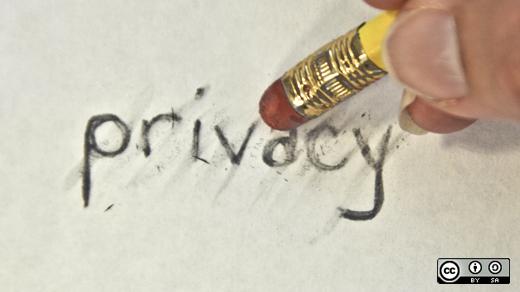The Online Streaming Act, the government controversial reform to the Broadcasting Act, continues to attract attention given an ongoing court challenge and backlash from the U.S. government. But there is another element of Bill C-11 that is deserving of attention. Due to what is likely a legislative error, the government deleted privacy safeguards that were included in the bill only two months after they were enacted. As a result, a provision stating that the Broadcasting Act “shall be construed and applied in a manner that is consistent with the right to privacy of individuals” was removed from the bill, leaving in its place two-near identical provisions related to official languages. The net effect is that with little notice (Monica Auer of FRPC spotted it), the Broadcasting Act has for the past two years included an interpretation clause that makes no sense and efforts to include privacy within in it are gone.
How did the government bungle privacy in the Broadcasting Act so badly? The best guess is that it starts with the original Bill C-11, which had two provisions related how the Act should be interpreted:
This Act shall be construed and applied in a manner that is consistent with
(a) the freedom of expression and journalistic, creative and programming independence enjoyed by broadcasting undertakings; and
(b)the commitment of the Government of Canada to enhance the vitality of English and French linguistic minority communities in Canada and to support and assist their development, as well as to foster the full recognition and use of both English and French in Canadian society.
There was no mention of privacy in the initial bill. However, during the Senate review, privacy concerns struck a chord. Senator Julie Miville-Dechêne introduced an amendment, noting that it was raised by Philippe Dufresne, the Privacy Commissioner of Canada:
I didn’t come up with this. It’s straight from a recommendation made by the Privacy Commissioner of Canada, Philippe Dufresne. He appeared before the committee in September, when we first began the study. I’ll quote what he said:
Given this and in light of the fundamental importance of privacy, the committee could consider amending section 3 of the Broadcasting Act to include the protection of the privacy of persons as a policy objective of that act. This would be similar to the approach taken in the Telecommunications Act and would ensure that privacy is fully considered in the interpretation and implementation of the bill, by the CRTC, regulated entities and courts.
Those are the words of the Privacy Commissioner of Canada, Philippe Dufresne. As a reminder, further to our research and decision-making, we opted to put that provision under the heading “Interpretation,” on page 4. Indeed, it’s an interpretive clause to ensure that the right to privacy will inform how the entire bill is interpreted, especially for all of the stakeholders affected by the bill. Given that the internet raises serious privacy concerns, as you know, having a provision that applies broadly is vital in order to minimize infringements on people’s privacy.
Senator Marc Gold, who was then the government’s representative in the Senate, said it opposed the amendment, but it received support from the committee and ultimately the Senate. As a result, the proposed Broadcasting Act’s interpretation clause looked like this after the Senate review:
This Act shall be construed and applied in a manner that is consistent with
(a) the freedom of expression and journalistic, creative and programming independence enjoyed by broadcasting undertakings and creators;
(b) the right to privacy of individuals; and
(c) the commitment of the Government of Canada to enhance the vitality of official language minority communities and to support and assist their development, as well as to foster the full recognition and use of both English and French in Canadian society.
Despite the initial opposition, the government approved the inclusion of the privacy amendment when the bill returned to the House of Commons and it received royal assent in April 2023. The updated Broadcasting Act therefore featured the new privacy provision in the interpretation clause.
That provision only lasted for two months, however. As Bill C-11 was being debated, the government was also proceeding with Bill C-13, a bill on official languages. It was introduced soon after Bill C-11 in 2022 and received royal assent in June 2023. Buried at the end of the bill was a change to the Broadcasting Act that few seemed to notice:
70 (1) Subsections (2) and (3) apply if Bill C-11, introduced in the 1st session of the 44th Parliament and entitled the Online Streaming Act (in this section referred to as the “other Act”), receives royal assent.
(2) On the first day on which both section 2 of the other Act and section 21 of this Act are in force, paragraph 2(3)(b) of the Broadcasting Act is replaced by the following:
(b) the commitment of the Government of Canada to enhance the vitality of English and French linguistic minority communities in Canada and to support and assist their development, taking into account their uniqueness, diversity and historical and cultural contributions to Canadian society, as well as to foster the full recognition and use of both English and French in Canadian society.
If the language in subsection (b) looks familiar, it is because it a modest amendment to the Broadcasting Act objective related to languages. In the original Bill C-11, that was found in subsection (b). Bill C-13 therefore states that if both Bill C-11 and Bill C-13 are enacted, the Bill C-13 version of (b) will govern. The problem is that Bill C-11 was changed: the provision on languages became subsection (c) with subsection (b) replaced by the privacy provision.
Somehow, no one noticed the change or worked through the implications of the provision (unless, more troublingly, this was the government’s attempt to undo the privacy change). As a result, when both bills received royal assent, the privacy provision in the Broadcasting Act was replaced by a second provision on official languages. The interpretation clause now looks like this:
(3) This Act shall be construed and applied in a manner that is consistent with
(a) the freedom of expression and journalistic, creative and programming independence enjoyed by broadcasting undertakings and creators;
(b) the commitment of the Government of Canada to enhance the vitality of English and French linguistic minority communities in Canada and to support and assist their development, taking into account their uniqueness, diversity and historical and cultural contributions to Canadian society, as well as to foster the full recognition and use of both English and French in Canadian society;
(c) the commitment of the Government of Canada to enhance the vitality of official language minority communities and to support and assist their development, as well as to foster the full recognition and use of both English and French in Canadian society.
While the neither the government nor Canadian Heritage officials have ever addressed what is likely an embarrassing gaffe (I don’t believe the CRTC has either), the Broadcasting Act’s interpretation clause now includes two very similar provisions on official language minorities and no provision on protecting privacy. One would hope that this was not the intent, but the government was always too focused on the political side of Bill C-11 and did not pay enough attention to the specific implications of the legislation. It is this careless approach that leads to errors that undermine the very intent of legislative reform. Further amendments to the Broadcasting Act are therefore required. Once the government turns to that mistake, it should also address some of the other major mistakes in Bill C-11, including the rules on regulating user content, which required a policy directive to the CRTC as a temporary fix.










At minimum, the government should acknowledge the mistake publicly and commit to restoring the privacy clause in the next round of amendments.
Such is the issues that can arise when one has multiple bills attempting to modify a single Act simultaneously. I can’t see the government proactively doing anything about it; it just isn’t likely to make headlines unless this current setup can make the headlines itself. So, I expect that we’ll see a ruling from the SCoC on it clarifying the situation, unless it decides to pass the buck and tells Parliament to deal with it.
So, the government accidentally deleted a privacy clause… sounds about right. Guess they’re really committed to transparency, just not in the way we expected.
Pingback: #AxisOfEasy 415: PromptLock Signals The Arrival Of AI Powered Ransomware -
Pingback: Canadian gov’t claims privacy provision in online censorship bill was "accidentally" removed - Todayville Calgary
Pingback: Canadian gov’t claims privacy provision in online censorship bill was "accidentally" removed - Todayville
Wow, this is pretty wild – a key privacy principle just *gone* due to an error! It’s genuinely frustrating how important details can get lost or overlooked. Makes you wish everything was as clear-cut as figuring out which ship has more works in ao3dle (https://www.ao3dle.pro/). At least there, the data’s right in front of you to compare!
Wow, this Bill C-11 privacy deletion is wild and frustrating! Losing a key principle by error is concerning. It really makes you appreciate things that *do* work for well-being. I’ve been researching best red light therapy devices for relaxation and better sleep lately.
Wow, this is pretty wild about Bill C-11’s privacy safeguards being deleted! It’s crazy how complex and messed up legislation can get. Sometimes I just want something simple and fun, like a quick game of retro bowl 26 to clear my head.
This Bill C-11 privacy blunder is truly wild! Deleting a key safeguard by ‘error’ is a huge oversight. It really highlights how crucial every word is. Speaking of words, I’ve been unwinding with thwordle lately for a fun, daily brain challenge!
Wow, this is wild! Deleting a key privacy principle from C-11 due to a ‘legislative error’ just two months after it passed is incredible. And replacing it with official languages provisions, making the clause nonsensical, then having it go unnoticed for two years? That’s quite a blunder.
Wow, deleting key privacy principles like that is incredibly concerning! It’s frustrating when things get so muddled due to ‘legislative error.’ Thankfully, some processes are much smoother. For instance, if you ever need to quickly convert video files, there are easy tools for mkv to mp4.
“Accidentally” deleting a privacy safeguard? This level of legislative incompetence is hard to believe; it feels more like a stealth repeal. It seriously makes me doubt the government’s commitment to privacy rights. When you need to relieve stress, you can Play Drive Mad Game.
This case highlights a massive loophole in the Canadian legislative process, where multiple bills try to modify the same Act simultaneously. Such complex stacking of legislation must be streamlined! Now, let me introduce a really fun time-killing game you can enjoy as Block Breaker unblocked.
The privacy clause was added by the Senate after so much effort! The government just swapped it out with a nonsensical language provision—this totally disrespects the public and the Privacy Commissioner’s work.Ready to assume the role of a ragdoll archer and use your bow and arrows to engage in fierce combat with numerous enemy archers? Take on the opponents in Ragdoll Archers and try to live as long as you can!
Chilling reality. This deep dive into modern privacy erosion highlights urgent needs for stronger safeguards and digital autonomy. A must-read wake-up call.
Wow, it’s crazy how a privacy clause could just disappear like that! It reminds me that maybe I should stop procrastinating and find a good VPN. Otherwise, maybe I’ll just go play games on TinyFun, at least there I know what’s going on!
deleting key privacy safeguards by accident just two months later? That’s a massive legislative blunder. It almost feels like someone was playing a game of bad time simulator with our laws, creating chaos instead of clarity. Seriously concerning!